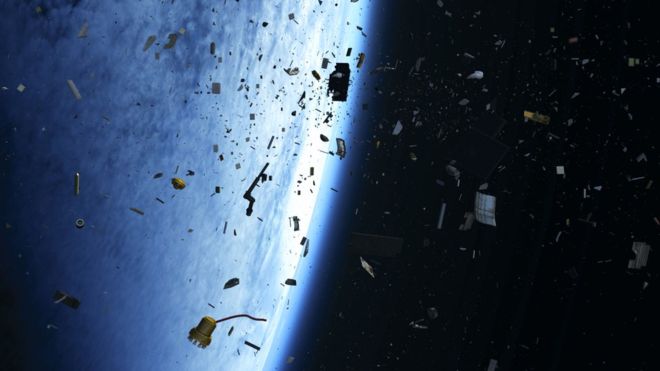With the rapid increase in space traffic anticipated over coming years, and the growing problem of space debris, improving Space Situational Awareness (SSA) is becoming increasingly important. The long-term sustainability of space is dependent on being able to effectively predict and prevent collisions, and for this we need better SSA systems.

Although there are accepted norms of behaviour and a number of international committees and agencies that have produced guidelines to ensure the safe and continued use of space, such as United Nations Committee on the Peaceful Uses of Outer Space (COPUOS), United Nations Working Group on the Long-Term Sustainability (LTS) of Outer Space Activities, Inter-Agency of Debris Coordination Committee (IADC), and European Space Agency (ESA), there is currently little explicit legal obligations requiring space players to engage in and carry out SSA. Consequently, there are many different approaches to space safety and SSA seen around the world, and some of them are likely questionable.
How can we achieve SSA that meets current and future needs? For effective SSA, you need to identify objects in space, know where they are, and predict where they will be in the near future. Doing this with a level of acceptable accuracy is incredibly complex and requires aggregation of data from many sources. It also demands all space actors to actively engage in SSA efforts. Is new prescriptive regulation needed to achieve SSA that is fit for purpose now, and in the future, or would regulation struggle to accommodate the different approaches that the various different actors around the globe have taken? Before we can begin to consider whether more regulation will improve the situation, we first need to examine existing approaches.
Existing Approaches and Barriers
Although over 100 countries have now signed up to the UN COPUOS, the way that countries and organisations implement and adhere to the treaties and agreements that the COPUOS oversees, can and does vary. In the absence of any independent, effective, central SSA system, governments, intergovernmental organisations such as the ESA, and private companies have either developed their own SSA systems or have come together to share operational data in a controlled way to enable SSA and improve flight safety.
Although some public office led Space Traffic Management (STM) services do exist, (such as Space-Track), many consider the SSA systems that power these services do not always be accurate enough to provide the level of safety that operators require. This concern about the value of such systems combined with challenges around transparency and data sharing have discouraged many organisations from signing up to these services. International security and political complexities are also feeding into the reluctance to share data and work collaboratively on a global basis.
The many different systems out there use data from separate sources, and the methodology, modelling and algorithms used to generate predictions not only about where space objects are, but where they will be, can vary enormously. Understandably, this can cause huge problems when it comes to operators acting on the information and planning collision avoidance manoeuvres.
What’s needed is a much more collaborative approach. Fusing multi-source data, pooled from governments, commercial entities, and satellite operators, and combining with advanced data processing techniques can considerably improve predictive positional accuracy.
Regulatory Considerations
With so many different approaches to SSA around the globe, how can space actors, who all have very different interests, be encouraged to engage in collaborative SSA efforts? A regulatory approach that enforces engagement in a very prescriptive way may have the opposite effect than is desired, resulting in key players withdrawing from agreements entirely. Given the current political uncertainties that the world faces, this is perhaps even more of a concern than it was a few years ago.
With this in mind, a lighter, more flexible approach that focuses more on encouraging cooperation, and developing guidelines that work to standardise practice and address emerging challenges seems preferable. Any regulation around SSA would need to aim to strike a balance between flexibility and standardization, allowing for variations based on specific circumstances, while ensuring a baseline level of safety and responsible behaviour. Collaboration among nations, industry players, and regulatory bodies is essential to establish effective regulations that consider the diverse interests and capabilities of all stakeholders.
Ultimately, regulation alone cannot solve all challenges related to SSA, but it can provide an essential foundation for improving space safety and mitigating the risks associated with the growing number of space activities.
-------
 Joe Chan is the Chairman of the Space Data Association (SDA). The SDA is an international organization that brings together satellite operators to support the controlled, reliable and efficient sharing of data critical to the safety and integrity of the space environment. The SDA membership includes the world’s major satellite communications companies. For more information o nthe SDA go to: https://www.space-data.org/sda/
Joe Chan is the Chairman of the Space Data Association (SDA). The SDA is an international organization that brings together satellite operators to support the controlled, reliable and efficient sharing of data critical to the safety and integrity of the space environment. The SDA membership includes the world’s major satellite communications companies. For more information o nthe SDA go to: https://www.space-data.org/sda/





